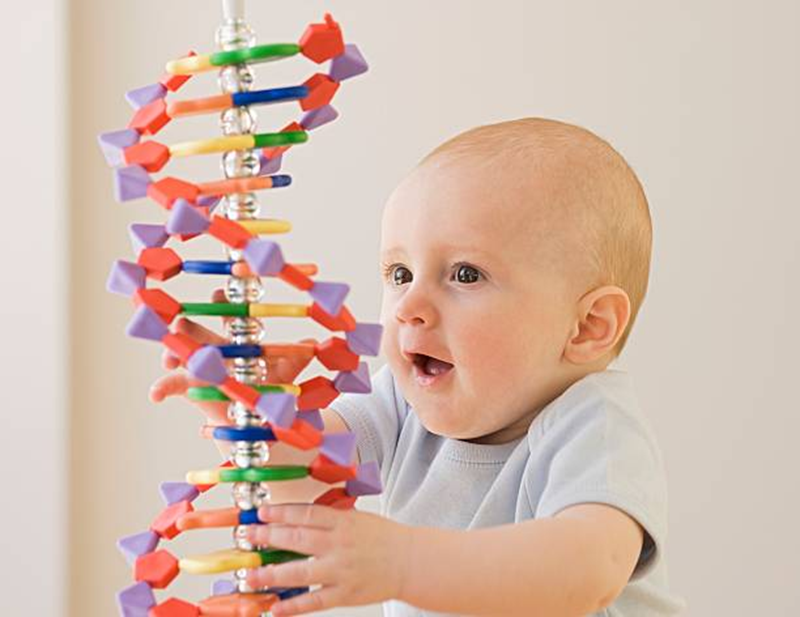
QLN 12 (128) - Three-Parent Babies, Melting Antarctic, Anaerobic Digestion, SilverGate Fallout & AI Offerings
This newsletter has 5 cover stories, 33 articles, 6 videos & 1 quote
==========================================
SMALL TALK
==========================================
Controversial three-parent procedure faces potential setback due to "Reversion" risk
In 2016, a baby was born using a controversial procedure that involved three genetic parents, which made headlines. The child inherited most of their DNA from their mother and father, but a small amount came from a third person. The procedure aimed to prevent the baby from inheriting a fatal illness that the mother carried in her mitochondria by swapping her genes with a donor's genes. The approach appeared successful, but it may not always be effective. According to MIT Technology Review, two cases have emerged in which babies conceived using the technique have shown "reversion."
In both instances, the proportion of mitochondrial genes from the child's mother has increased over time, from under 1% in the embryos to roughly 50% and 72% in two separate cases. Luckily, the babies in question were born to parents who did not have mitochondrial disease-causing genes. However, researchers believe that about 20% of babies born with the three-parent technique could eventually inherit high levels of their mothers' mitochondrial genes. This could be disastrous for babies born to individuals with mutations that cause disease, resulting in devastating and potentially deadly illnesses.
Satellite observations show an alarming decline in Antarctic sea ice levels
Satellites have been aiding scientists in tracking the amount of floating ice on the ocean surrounding Antarctica's 18,000km coastline for 44 years. The fringing waters of the continent experience a substantial annual shift, with sea ice reaching a peak of approximately 18m sq km in September and then decreasing to just above 2m sq km by February. However, in the past four decades of satellite observations, there has never been less ice surrounding the continent than there was last week. During the southern hemisphere summer of 2022, the quantity of sea ice dropped to 1.92m sq km on 25 February, which is a historic low based on satellite observations that began in 1979.
The rise of companies focusing on converting food waste into renewable energy
While some individuals perceive grocery store dumpsters as trash, others view them as lucrative opportunities. Across the United States, new facilities are emerging to combat food waste through anaerobic digestion, a method that employs microbes to decompose organic matter. Divert, a company dedicated to tackling food waste, recently disclosed that it has secured a $1 billion funding agreement to aid in the development & implementation of this technology. Divert is just one of several enterprises concentrating on converting one person's food waste into another individual's energy while also providing a climate advantage.
Crypto industry rocked as Silvergate Capital faces viability questions
The crypto industry is feeling the impact of Silvergate Capital's uncertain future, as the crypto-friendly US bank faces the possibility of insolvency. Silvergate's situation worsened with the announcement of a delay in their latest annual report and the revelation of an investigation by the U.S. Justice Department. As a result, the bank's shares plummeted 58%, hitting an all-time low, after key partners announced they were severing ties. Silvergate provides a widely-used payment network that enables real-time fund transfers between crypto firms, but many digital asset exchanges, trading desks, and stablecoin issuers have ceased using the bank's services. The news has also caused Bitcoin to drop by up to 6%, although it has since recovered slightly.
Meta and Snapchat ramp up AI efforts with new products and features
Meta Platforms is expanding its presence in the artificial intelligence (AI) field by launching new AI products for Instagram and WhatsApp. The move follows Zuckerberg's recent announcement of a new AI model dubbed "LLaMA," which was created to help researchers develop less "toxic" chatbots. According to Meta, their new model can also assist researchers in improving and repairing AI tools that disseminate misinformation. This action was taken in response to the success of OpenAI's ChatGPT.
Snapchat also recently revealed that it is launching its own ChatGPT-powered chatbot, My AI. The bot is trained with a unique tone and personality and designed to avoid any biases. Snapchat users with a paid subscription to Snapchat+ will have access to the new conversational chatbot, which can create haikus, organize hiking trips, and suggest birthday gifts.
====================
====================
====================
OTHER ENGAGING READS
====================
====================
VIDEO CORNER
====================
==============================================
I can’t tell you how many times I’ve been given a no. Only to find that a better, brighter, bigger yes was right around the corner.
Arlan Hamilton
==============================================
Read every story from Faisal Khan on Medium to stay informed with the best content across a wide range of topics including Business, Tech, Space, Cryptos, Health & Science.
Twitter | LinkedIn | StockTwits | Telegram| Facebook